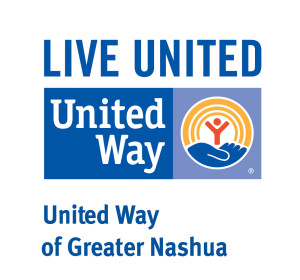Rosie’s Pantry
WE CAN… work together to make your month better!
Rosie’s Pantry was founded by Emily Carrara, in collaboration with Director of Volunteer and Community Engagement Sara Ceaser and other United Way volunteers, as a joint project of United Way of Greater Nashua, and Girls Inc. Emily first got involved at United Way while working at Waypoint, a New Hampshire based human services nonprofit, in Nashua. Her desire to serve her community even outside her job led her to seek out volunteer opportunities in the area.
“A colleague of mine connected me to Sara, and then I started helping with the Little Free Pantry” Emily explained.
In her time volunteering at the Little Free Pantry, United Way’s free food pantry, Emily noticed that the population visiting the pantry needed more than they were offering.
“We had some [menstrual hygiene] products that people had donated, but not much. Not enough.” Emily said.
“Unfortunately, period supplies are one of the necessities that WIC doesn’t cover” she continued.
While Emily and other volunteers at the food pantry would give out their limited supplies while they had them, she became frustrated that she had nowhere to direct those in need when they undoubtedly ran out.
After a leak at the food pantry led to their supply getting ruined, Emily followed the lead of groups like “The Period Project” that she discovered online.
“It made me realize we could do more.”
From there, she began organizing the program we now know as Rosie’s Pantry, named after ‘Rosie the Riveter,’ an iconic symbol of women’s empowerment. She worked closely with Sara Ceasar at UWGN to coordinate with Girls Inc. about hosting the pantry and setting up supply collection programs. While Rosie the Riveter was intended to rally women to work in defense industries to support the men away at war, Rosie’s Pantry is not just for women. It is for anyone in the Greater Nashua area who menstruates and is in need of supplies. The primary mission of Rosie’s Pantry is to end period poverty for any and all affected by it.
Another piece of the mission is to combat the stigma surrounding periods.
“We want to normalize these types of conversations, and I feel like we have,” Emily said.
She went on to describe how the Rosie’s Pantry collection drives, which run the first and third Sunday of each month at the Nashua Hannaford, have garnered positive feedback from community members who stumble across its volunteers.
“I was surprised by how many people, including men, were so supportive of the project and our goals! It was great to see so many of them talk about the need for destigmatizing periods, and to watch them come out of the store with supplies to donate!”
Rosie’s Pantry has big plans for the future, such as providing menstrual hygiene products in Elementary, Middle, and High Schools in the area and offering educational resources for young menstruators.
“Many girls miss school because of a lack of access to these supplies, or they don’t have a home environment where asking about them is comfortable or allowed”
Emily’s hope is to have mini Rosie’s Pantries in schools all over, and to partner with health experts to make comprehensive guides to menstrual health and hygiene.
Emily now works in Substance Use Disorder Services as a case manager in Manchester. Her position there often leads her to work with women in transitional housing, many of whom are fleeing unsafe relationships and/or housing situations. The more she works with at-risk communities, the more she has realized how pressing the need for menstrual hygiene products truly is.
“This [getting period supplies] aren’t something they need to be worrying about,” she says, adding that it would be incredible to expand Rosie’s Pantry to other areas of NH and help even more populations.
For the time being, though, we are very excited to be developing Rosie’s Pantry programs at Nashua High School South, Pennichuck Middle School, and Mount Pleasant Elementary School! We plan to work closely with these schools to support young menstruators in need, and hope that the success of these ‘trial’ programs will motivate other local schools to adopt programs of their own.














